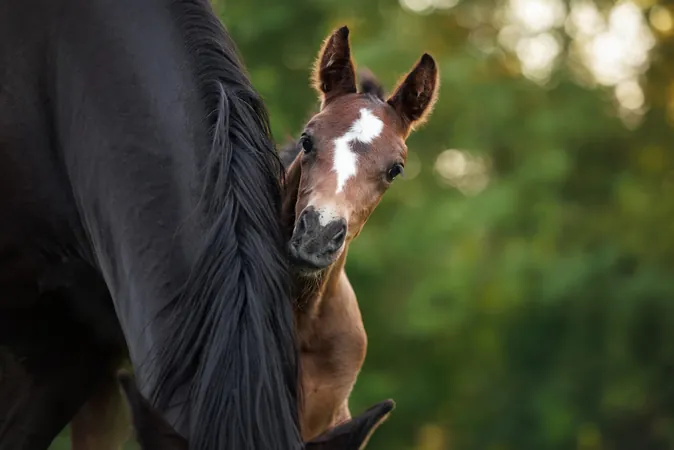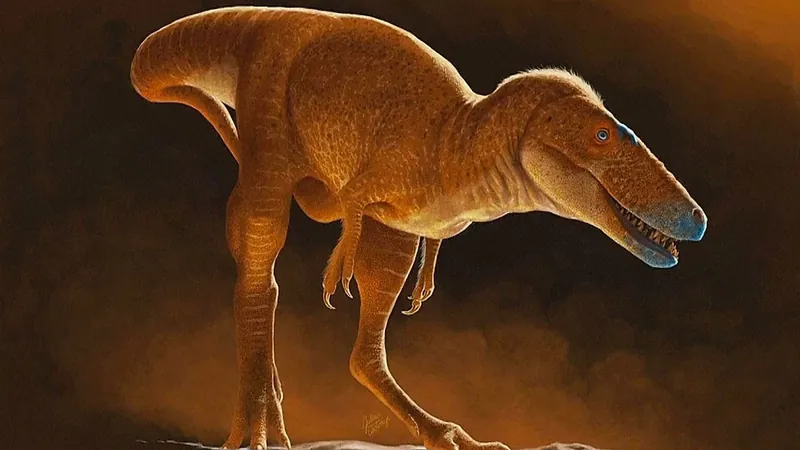
The Ultimate Feeding Guide for Horses at Every Life Stage
2025-05-12
Author: Sophie
How a Mare’s Diet Shapes Her Foal's Future
As horse owners, understanding the vital role a mare's diet plays in the development of her foal is crucial. The nutrition a foal receives starts while still in the womb and continues through lactation. Maintaining the mare's optimal health during pregnancy is non-negotiable. In the last trimester, it's essential to ensure she's getting enough protein, vitamins, and minerals to support her growing baby and help maintain her weight.
Lactating mares have particularly high nutritional needs. They require ample calories and quality nutrients to produce milk and keep themselves healthy. Mothers need food that fosters robust growth in their foals, typically one with 12-14% protein and rich in amino acids like lysine and methionine.
Avoiding Common Feeding Pitfalls During Weaning
When it's time to wean, many owners make mistakes that can stunt a young horse's development. Group feeding weanlings can lead to dominance issues, where some horses eat more than others, risking uneven growth rates. While there’s a common misconception that a slower growth rate is better for certain breeds prone to developmental issues, restricting feed to only moderate-quality hay can be a misstep. Instead, focus on adjusting calorie intake while maintaining essential proteins and minerals, which are crucial for healthy growth.
Adjusting Forage to Concentrate Ratios Through Life Stages
The balance between forage and concentrates in a horse's diet doesn’t change drastically across life stages, depending on individual goals and forage quality. Broodmares, especially during the last third of gestation and first third of lactation, will need more concentrates due to their heightened nutrient demands. Growing horses, from weanlings to yearlings, also benefit from a high-quality concentrate to support their rapid growth and activity.
Catering to the Needs of Aging Horses
As horses age, they often face dental challenges that hinder their ability to chew hay and grain effectively, which can impact their overall nutrient absorption. For older horses or those with dental issues, it's critical to focus on easily digestible feeds to maintain health and vitality.
By carefully tailoring your horse's diet at every stage of life, you can ensure they grow strong, healthy, and well-nourished.









 Brasil (PT)
Brasil (PT)
 Canada (EN)
Canada (EN)
 Chile (ES)
Chile (ES)
 Česko (CS)
Česko (CS)
 대한민국 (KO)
대한민국 (KO)
 España (ES)
España (ES)
 France (FR)
France (FR)
 Hong Kong (EN)
Hong Kong (EN)
 Italia (IT)
Italia (IT)
 日本 (JA)
日本 (JA)
 Magyarország (HU)
Magyarország (HU)
 Norge (NO)
Norge (NO)
 Polska (PL)
Polska (PL)
 Schweiz (DE)
Schweiz (DE)
 Singapore (EN)
Singapore (EN)
 Sverige (SV)
Sverige (SV)
 Suomi (FI)
Suomi (FI)
 Türkiye (TR)
Türkiye (TR)
 الإمارات العربية المتحدة (AR)
الإمارات العربية المتحدة (AR)